This post was co-published at talanhorne.com
I went to see Marvel's Dr. Strange this weekend.

I have been severely looking forward to this movie, ever since I saw The Avengers and realized that more Marvel superhero movies were bound to get greenlighted.
For reference, Dr. Strange is my second favorite superhero, after Superman. And while others were losing their minds with impatience for the next Captain America or Iron Man outing, I was waiting with baited breath for the Sorcerer Supreme to make his MCU debut.
And I'm also a fan of Benedict Cumberbatch, because Sherlock.

So, after years of waiting, I find myself sitting in the theater, shelling out the extra money to see the film in 3D, practically bouncing in my seat with the excitement of anticipation.
And then it happens. The first thing I hear as the movie starts.
"What's that?" a high-pitched but undeniably LOUD voice fills the auditorium.
"Shh!" Is the response.
"Who are they?"
"Shh!"
"What's going on?"
"Shh!"
"Why are they doing that?"
"Shh!"
"WAAAAAAAAAAAAAAAAAAAAAAAAAAHHHHHHHHHHH."
You've got to be Kidding Me
Someone had brought their six-year-old to the movie. For real.

The conversation portrayed above did not happen all at once. It repeated itself several times throughout the showing. And what happened once the little one started crying? Did the parents immediately realize their mistake and leave the theater? Did they take the child outside until he had calmed down? Did they even show the slightest bit of remorse?
No. They just rocked the child while he cried, which, for the record, didn't work.
What Almost Happened
It was wrong of me to hate the child for interrupting the movie.
It was wrong of me to fantasize about ripping him from his mother's arms, throwing him across the auditorium, through the movie screen, and hadouken-ing him into a Wyle E. Coyote-esque pile of ashes.

I managed to keep a handle on my rapidly dissolving goodwill towards mankind. And I was only able to do it by remembering that the child was actually the biggest victim of this entire arrangement.
Because Children are Wonderful

They are. Beyond the way they love us, need us, and give our lives fulfillment, children are necessary and important parts of society. For carrying on the survival of our species after we completely lose the power to do so, children do us a favor we can never possibly repay. And as fragile as they are, they require us to protect them and moderate their exposure to the ugliness of the world.
And taking a six-year-old to a PG-13 movie in a theater is child abuse.
Mr. Devil's Advocate: "Wait, wait, WAIT! Sheesh, give me some time to sit down before you start spewing nonsense."
Ah, Mr. Devil's Advocate. How nice of you to drop in.
Mr. DA: "How necessary of me to drop in, you mean. I can't believe you just said what you said."
Did I say anything untrue?
Mr. DA: "Can you honestly sit there and tell these people, who are quite common in today's world, that they are child abusers?"
I believe I just did.
Mr. DA: "Do you have any children?"
Admittedly, no.
Mr. DA: "Do you know how hard it is to raise children?"
No.
Mr. DA: "Do you have a degree, or other expertise, in childcare?"
No.
Mr. DA: "Then how can you dictate to people how to take care of their own young?"
*shrug* I've never served in public office, either, yet I'm allowed to vote in elections that decide who will fill those offices.
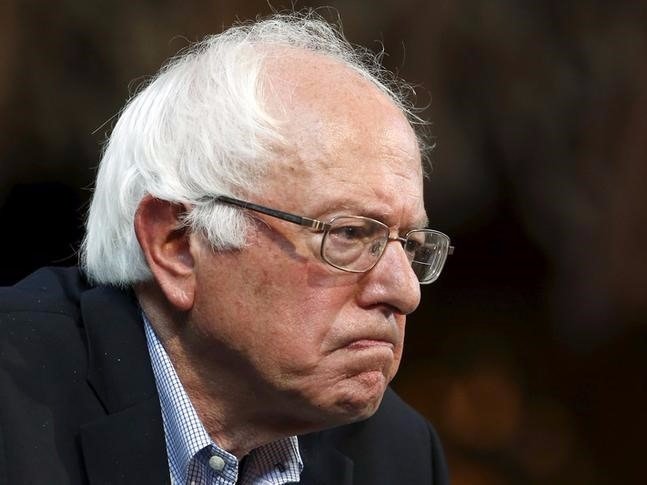
Although, if you're a Bernie Sanders supporter, your vote was thrown in the garbage before it got counted.
Mr. DA: "Touche. But can you really transpose that onto the subject of child endangerment?"
Well, let me ask you this: if I see a six-year-old being abused by an adult, do I have to be the child's father before I can determine whether that is bad for him?
Mr. DA: "Well, no."
Do I need to know how hard it is to raise children before I can realize that the child is in danger?
Mr. DA: "No."
Would I need a degree, or other expertise, in childcare before I could make such a decision?
Mr. DA: *sigh* "No."
Then I don't believe I'm out of bounds to cry child abuse where I see it.
And, in the case of movies, I can give you an example.
Childhood Trauma Lasts Forever.
I have a friend who watched a lot of movies with me, before he moved to a different state.
One October, I recommended to him that we watch an old Halloween favorite: Gremlins.
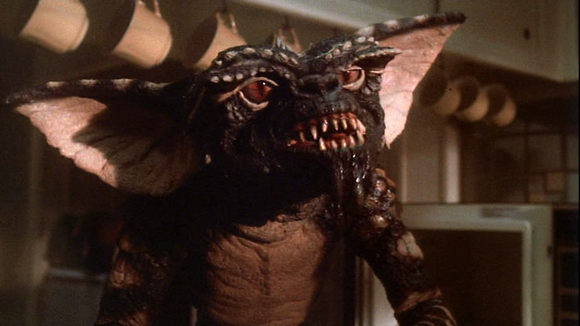
Don't put them in sunlight, don't get them wet, don't feed them after midnight, and never, ever, ever make a sequel.
He couldn't do it. No matter how I begged, pleaded, or implored, he refused. And he did so with such paranoid defiance that was, to me, an entirely new side of him.
This poor fellow had been exposed to Gremlins when he was quite young, and it had scared him half to death as a small child. To this day, he cannot watch it.
These are not the actions of someone without deep emotional scars. And they affect him in a number of ways that I probably don't even see. I feel bad for my friend, but I cannot heal the damage has been done, because I was not there when it happened.
Children Need Movies
Which is not to say that we need to deprive children of movies. Or even that we need to deprive them of scary movies.
Movies are an art form that can be appreciated even by the young and small. That's what makes them such a good introduction, for children, to the arts.
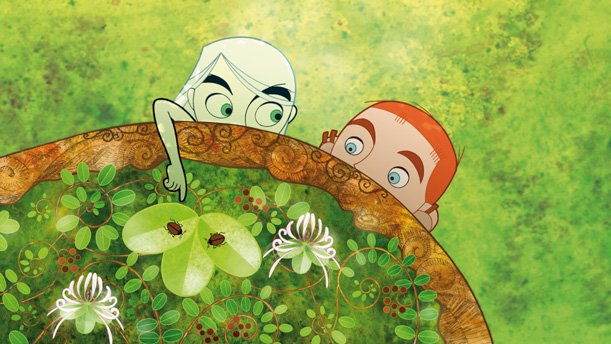
My argument is not that children should be kept from movies. And, for some children, even PG-13 movies may be appropriate viewing material.
However, small children need structure. They're going to ask questions during the movie. They're going to want to know "Who's that?" and "Why are they doing that?" and "Why did it change, all of a sudden?". And we owe it to them to provide a controlled environment where they can have those questions asked and answered without interrupting the movie. Where the presentation can be paused or rewound as the need arises. Or where the show can be stopped entirely when it becomes too intense for them.
Which brings me to the point I am arguing.
Children Should Not Watch Movies in the Theater
Instead, they should be exposed to movies in a controlled environment---namely, the home.
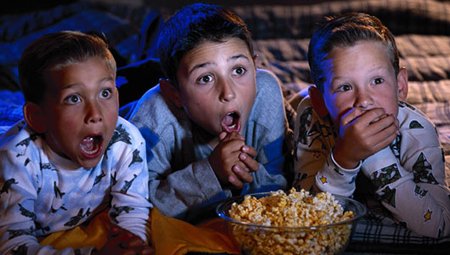
Home viewing is not only the optimal means of exposing small children to movies, it is the only safe method of doing so. Movies in the theater cannot be paused or given context for children. There is no option to skip the scary parts or turn the lights back on. The parent who takes their small child to the theater surrenders all control over the experience to the movie makers themselves, who are not present in the theater and who do not know the needs of this one specific child. And this is particularly dangerous if the parent has not previously seen the movie and has no idea what to expect.
The solution to this problem is to consign all childhood viewing of movies to that great laboratory we call the home---a place of comfort and learning where children's exposure to modern media can be monitored and moderated.
Theaters Share the Blame
Before you start thinking that this post is nothing more than one long guilt trip against parents, we have to talk about theater companies' contribution to the problem.
And their contribution is huge.
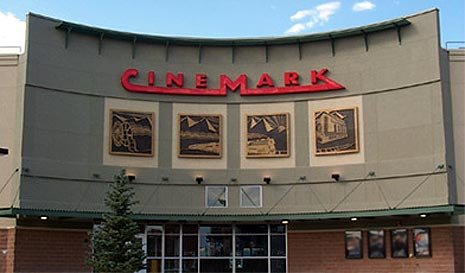
Modern movie theaters are in the middle of a crisis.
Their sales are falling fast. And while each year breaks records and brings bigger blockbusters, the overall rate of moviegoing is plummeting.
And, given my experience while watching Dr. Strange, it isn't hard to see why.
The movie-watching experience is no longer pleasant. Aside from the problems with children in the theater, there is that one other big problem that nobody can seem to fix. I think you know what I mean.
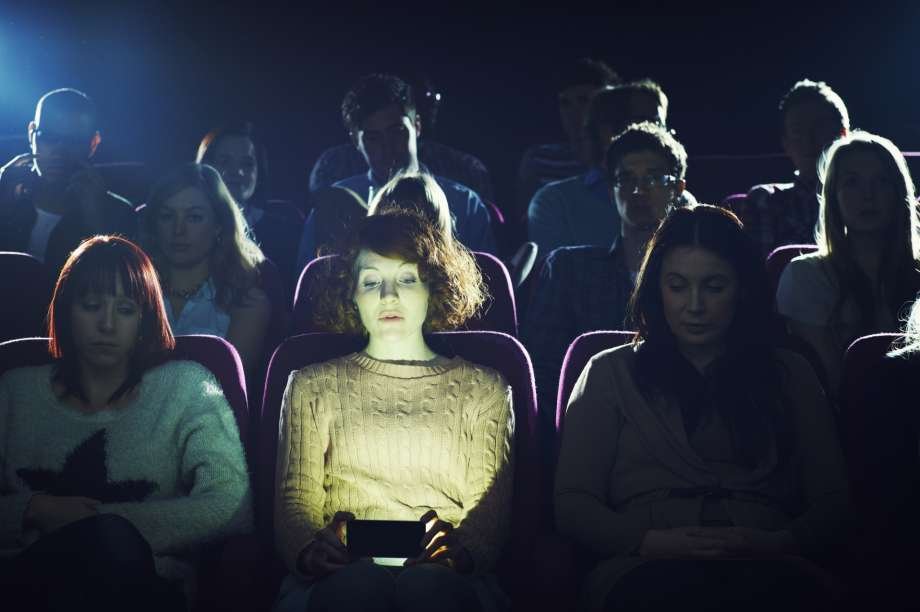
If ever there were a legitimate justification for murder...
I'd love to address this other subject, but it could easily fill up its own blog post.
Suffice it to say that theater companies are already aware of the problems keeping people from going to the movies anymore. And they are doing jack squat to stop it.
Oh, but that doesn't stop them from complaining. They can't stop whining about how something needs to be done to save their industry, as they fiddle while Rome burns around them.
Fussing children at theaters are becoming more and more unavoidable. And before you suggest that people should just start going to late-night showings of movies, since children supposedly don't go to those, you should hear about my experience watching another Marvel movie: Ant Man.
I caught the 10PM screening of that one. It still didn't stop some braindead mother from bringing her toddler to the showing. And it still did not stop the theater from selling a ticket for the unprepared child who was not going to be happy at that time of night, no matter what movie he was watching.
And I get it---the theater wants to fill as many seats as possible. But by giving seats to those who disrupt the viewing experience of others, and driving away their primary audience, they are killing the golden goose in the hopes of getting a single egg.
I am often given to absolutist pronouncements, I know, but in this I must put my foot down:
Until such time as children are ready for the public theater experience, they should be barred from entry.
When does It End?
Mr. DA: "Okay, Mr. Wise Guy, tell me this: when should the cutoff be? How old does a child have to get before he can be allowed in the theater?"
Well, naturally, children do not mature all at the same rate.
Mr. DA: "Uh huh."
And there will always be outliers: those children who hit the right level of maturity extremely soon or extremely late.
Mr. DA: "Uh huh."
Yet cutoff ages must occur in such situations. For example, when obtaining a driver's license, society imposes an age restriction.
Mr. DA: "Uh huh."
Because there is no objective way to measure maturity.
Mr. DA: "Yup."
And I'm not the subject matter expert here. However, if I were to propose a cutoff age that I believe serves both the child and society, and I have to make such a judgment right now, on the spot, then I would suggest ten.
Children should only be allowed in theaters after their tenth birthday.
Mr. DA: "And what's your reasoning behind that number?"
Well, by the time children are ten years old, they are normally in the Fourth Grade in school, meaning that they've had enough schooling to know what "concentration" is and how important it can be. Children who understand the principle of concentration will know how awful it is to have one's concentration broken, and are more likely to respect the concentration of others.
So I will double down on this estimate: only people of age 10 and older should be allowed in movie theaters. And, though this goes against the one Libertarian bone I have in my body, this probably needs to be enforced by law. Because, year after year, fewer parents are able to make sound judgments in this arena.
Making a New System

It wouldn't require that much of a change. School districts already make IDs for students as early as Seventh Grade. All I'm asking is that this be pushed forward into Fourth Grade.
Picture it: the school year begins, then picture day arrives, after which the Fourth Grade teacher is given a stack of ID cards which she keeps locked away. As the year progresses, the tenth birthdays of students come in a long procession. And as each one comes, the teacher has a special gift for the birthday boy or girl: an ID card that allows them access into movie theaters.
The child takes this card home at the end of the school day and gives it to their waiting parents, who keep it safe in their wallets or purses and rejoice in the fact that their child is now old enough to go with them to the theater. The theater, in turn, card checks all children who look like they may be too young to attend a showing, as they are now required by law to do. And they are very hard-nosed about it, as they can be prosecuted for child endangerment if they violate this rule.
The child, who by now has seen many movies in the home environment, and, through several years of schooling, has learned the importance of concentration, is now ready to watch movies in a public space without interrupting anyone else's experience.
Objections
Mr. DA: "What you propose would deprive children of the theater-going experience. They'd never get the chance to watch their favorite films on the big screen."
Which is no different than what happens now. How many children born today will have the opportunity to watch Snow White or The Little Mermaid or How to Train Your Dragon on the big screen? Yet for many children, even those born today, these will become their favorite movies.
Mr. DA: "But you would force these children to miss out, for months and months, until the films are released on home media. Meanwhile, all their friends are enjoying something they cannot."
Which happens anyway all the time in childhood. Some children always have to wait before they old enough to enjoy what their friends are doing right now. Whether it's getting their ears pierced, getting their driver's license, or getting to ride the rollercoasters at their favorite amusement park. That's just part of life.
Mr. DA: "But you would also, in many cases, be forcing the parents to miss out. It's hard to find a babysitter, and..."
AND MOVIES ARE NOT A BABYSITTER! Nor can they substitute for one.
Yes, parents will have to miss out on seeing certain movies in theaters. But they already do that. People with young children do not go to movie theaters as much as people who are single. It has always been this way. And, compared to a lot of the other sacrifices people make when they become parents, it's not even close to the top of the list.
And I believe you are out of objections, now.
Conclusion
This is not something that's going to happen all at once, and perhaps not anytime soon. But it is going to happen, one way or another.
Movie theaters will either adapt, or they will go extinct.
Movie production houses will defend their interests, or they will be replaced by Netflix and other new media.
Those who refuse to address the problem now will pay the price when the cows come home.
I don't believe I am asking for anything extraordinary. I cannot get my first impression of Doctor Strange back. No second viewing will undo the damage of the first. And the poor child who was frightened by the movie might not ever get untraumatized by the event.
We can all make it easier on ourselves---all of us---by committing to making a change today.
It doesn't take a lot, as long as everyone wants to fix the problem.
Image Citations
- Doctor Strange poster. Source: Doctor Strange
- The detective, in profile. Source: Sherlock
- "What's that, mommy?" Source: Unknown
- Ryu's Hadouken. Source: One of the Street Fighters. I don't know which one.
- Surprised baby. Source: Unknown
- Mr. Sanders smells something bad. Source: Unknown
- This one gets killed in a microwave. Source: Gremlins
- In the forest. Source: The Secret of Kells
- What is this rated?. Source: Unknown
- Cinemark. Source: Cinemark
- The unforgivable sin. Source: Unknown
- Student ID Template. Source: Calhoun Community College
